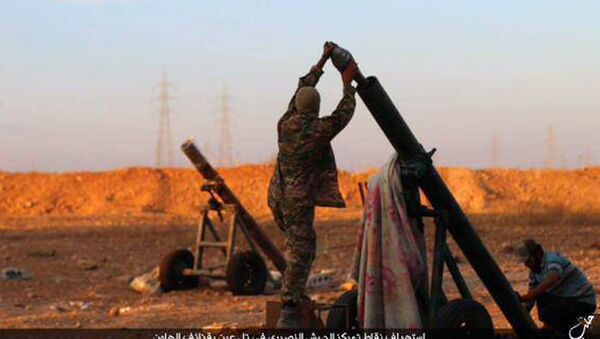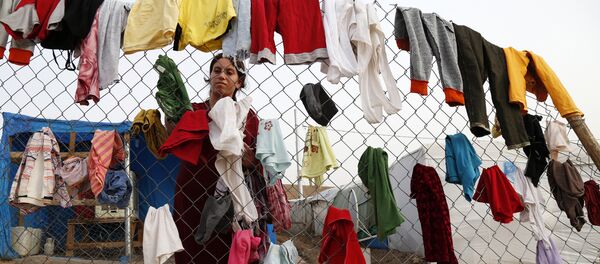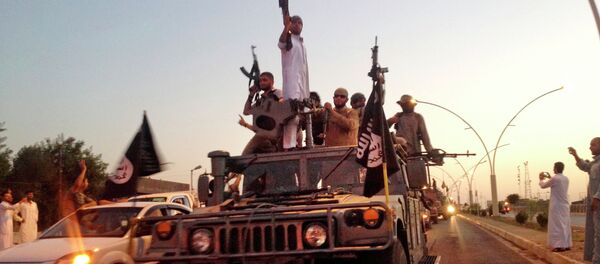BERLIN (Sputnik) – Steinmeier’s two-day agenda in Tehran, Riyadh and Amman aims to at least lessen tensions in Syria, as the German diplomat said at a briefing on Thursday.
"My understanding of foreign policy is that one tries to defuse a conflict. And if that fails, one tries again," Steinmeier told the Bild daily hours ahead of his departure.
He told European lawmakers later that day it was imperative to negotiate with regional powers in addition to holding constructive talks with Russia and the United States.
Steinmeier said in the pre-flight interview with the newspaper that "no solution is possible without Russia, and certainly not against Russia," urging to continue dialogue with Moscow on the Syrian issue.
Islamic State and al-Qaeda-affiliated Nusra Front are two of the more notorious militant groups that have seized on political unrest four years ago and are engaged in the fight against Syrian government forces.
Russian Aerospace Forces launched anti-ISIL bombing missions at the request of Syrian President Bashar Assad on September 30.
Russian President Vladimir Putin confirmed earlier that Russian operations were limited to the timescale of the Syrian armed forces’ offensive and ruled out the involvement of Russian ground forces.
Moscow has called repeatedly for political dialogue toward resolving the Syrian crisis and argued in favor of talks with the Syrian opposition, including the Free Syrian Army (FSA). Russia had requested the United Kingdom and the United States for assistance in establishing contacts with the FSA.
German Chancellor Angela Merkel pointed to the Syrian civil war on Thursday as the major reason behind Europe’s biggest refugee crisis since World War II.
Updated German media estimates placed the number of asylum seekers anticipated this year at 1.5 million versus official projections of 800,000 people.
The latest opinion polls suggest over half of German citizens consider Berlin’s liberal refugee policy overwhelming, while one-third of the population believes Germany will be able to resettle new refugees in the country.
The last top German diplomat to travel to Iran was Joschka Fischer in 2003. Steinmeier’s visit was announced a month after Germany and five permanent UN Security Council members signed a landmark nuclear agreement with Iran in July.





